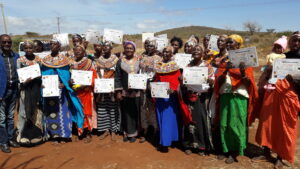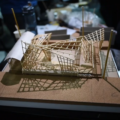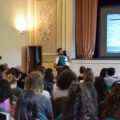
Workshop
Seeds of hope in northern Kenya, a project that leaves no one behind
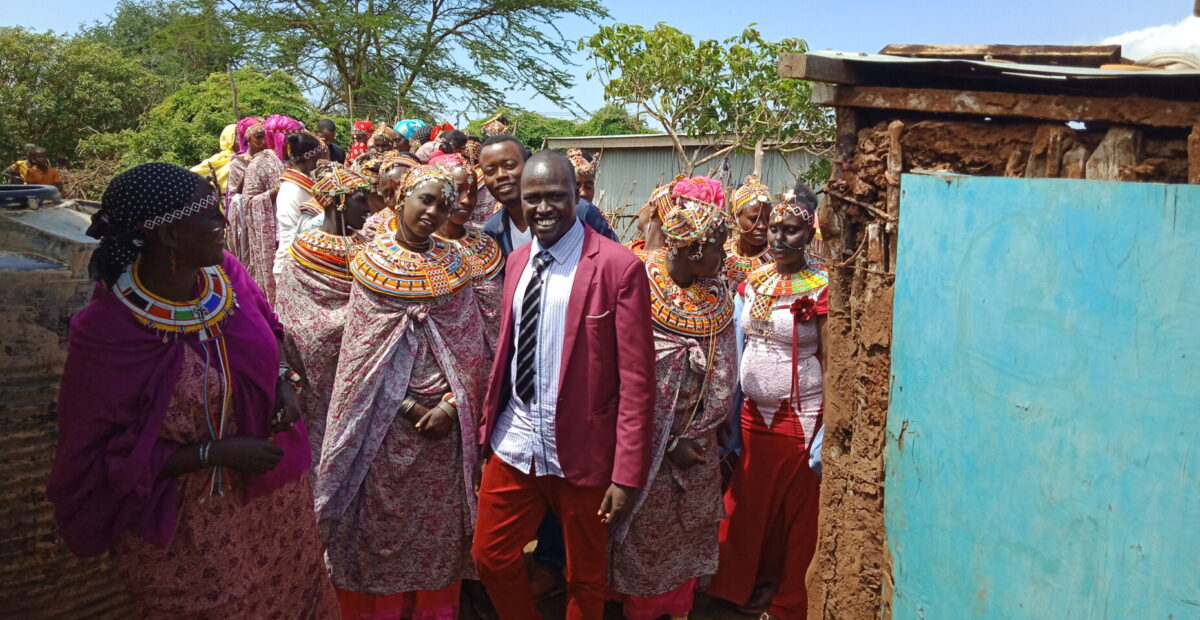
Augustine Lenamoi founded the Northern Pastoralists Youth Development Organization (NPYDO) in Marsabit, Kenya, an organization completely run by young people, with the aim of improving the social and economic conditions of the local community through development projects. Leaving no one behind.
We are in Marsabit, a province in northern Kenya on the border with Ethiopia. Here 80% of the territory is made up of desert and the poverty rate among the rural population is very high, with strong consequences in terms of poor nutrition, difficult access to drinking water and low possibility of economic growth.
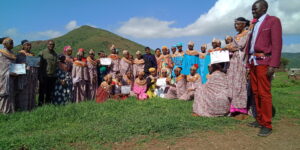
It is in this context that the Northern Pastoralists Youth Development Organization (NPYDO) was born in 2016, an organization run entirely by young people, with the aim of improving the social and economic situation of local communities through development projects.
The founder, Augustine Lenamoi, says that the driving force behind NPYDO was “the idea of loving each other, growing together and leaving no one behind”. In fact, Augustine explains that the Province of Marsabit, “has remained marginalized in the sphere of development, by all the regimes after postcolonial independence”. But this starting condition has brought out even more the desire to pool skills, resources, ideas, time and energy to carry out projects that open, especially to young people, previously unimaginable opportunities.
One example of this is the story of Nasieku, the eldest daughter in a family of eight children within a strongly patriarchal environment where the possibility of education for women is minimal. “Nasieku”, Augustine explains, “had to drop out of school to undergo compulsory infibulation, and was then assigned a chosen suitor of her parents. Six months later she got married and had two children, making her completely dependent on her husband for her basic needs. When NPYDO started Shepherd School, Nasieku breathed a sigh of relief because she could go back to school and learn skills that were important to her personal fulfillment. She was the first graduate of our school and started her own business, which continues to do very well today, thanks to what she learned at school”.
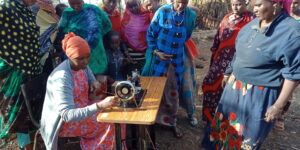
Another project that has reopened scenarios of hope is the one that includes the Tournament for Peace Football Tournament and the Worries Marathon, which are usually held during the August and December holidays. Augustine clarifies the goal of these initiatives: “To sensitize young people to the issues of peace, since they are the ones most involved in the militias and armed conflicts between the local tribes. The project aims to demonstrate with facts the regenerative power of love, as opposed to the devastating effects of hatred and conflict. This message, among other things, also echoed strongly among older people, significantly contributing to the achievement of a peaceful and harmonious coexistence between the tribes in many areas of the territory”.
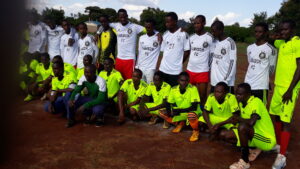
Making people aware and sensitive to such issues is then then accompanied by initiatives that offer a concrete alternative, such as the Moran Regreening Project that rehabilitates young soldiers who have put their weapon away and opted for environmental sustainability activities such as reforestation, in full agreement with the objectives of the 2030 Agenda for sustainable development, promoted by the United Nations.
And the water filter project moves in the same direction, which, Augustine tells us: “aims to improve access to clean drinking water and sanitation, where government efforts, through the drilling of wells, are not successful. Being able to carry out these projects means facing the challenges of the local population, which are compatible with global challenges”.
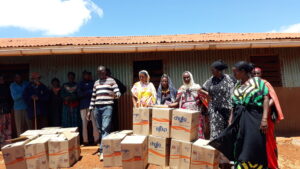
Despite being so focused on its own territory, NPYDO has never lost its gaze on the world, presenting itself as a meeting place between different cultures. This is what emerges from Augustine’s account of the Asante Africa Project carried out in collaboration with Youth for a United World: “The Asante Africa Project is an exchange program through which young people from all parts of the world come to various provinces of Kenya to have an experience of volunteerism (work for a local community or for a school) and at the same time experience the beauty of the encounter between cultures, discovering for example the cuisine of each one, the different languages”.
These are just some of the many projects show how in a single province of northern Kenya, thanks to NPYDO and the desire to pool their talents and skills, a seed of hope has been planted for many young people. NPYDO does not provide solutions but, as stated by the founder, Augustine Lenamoi: “It offers help to face the problems of the community, proposes challenging experiences and teaches how to overcome them. It wants to demonstrate the importance of human values for a better future, without leaving anyone behind”.
#WeGrowTogetherWithNoOneLeftBehind
